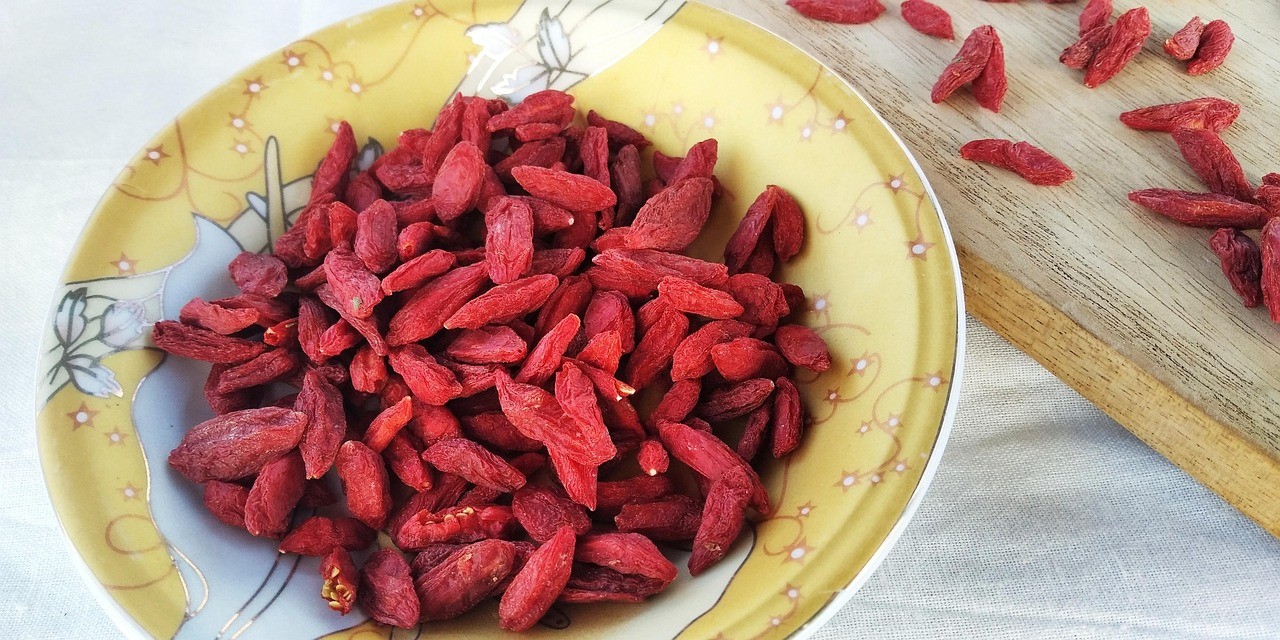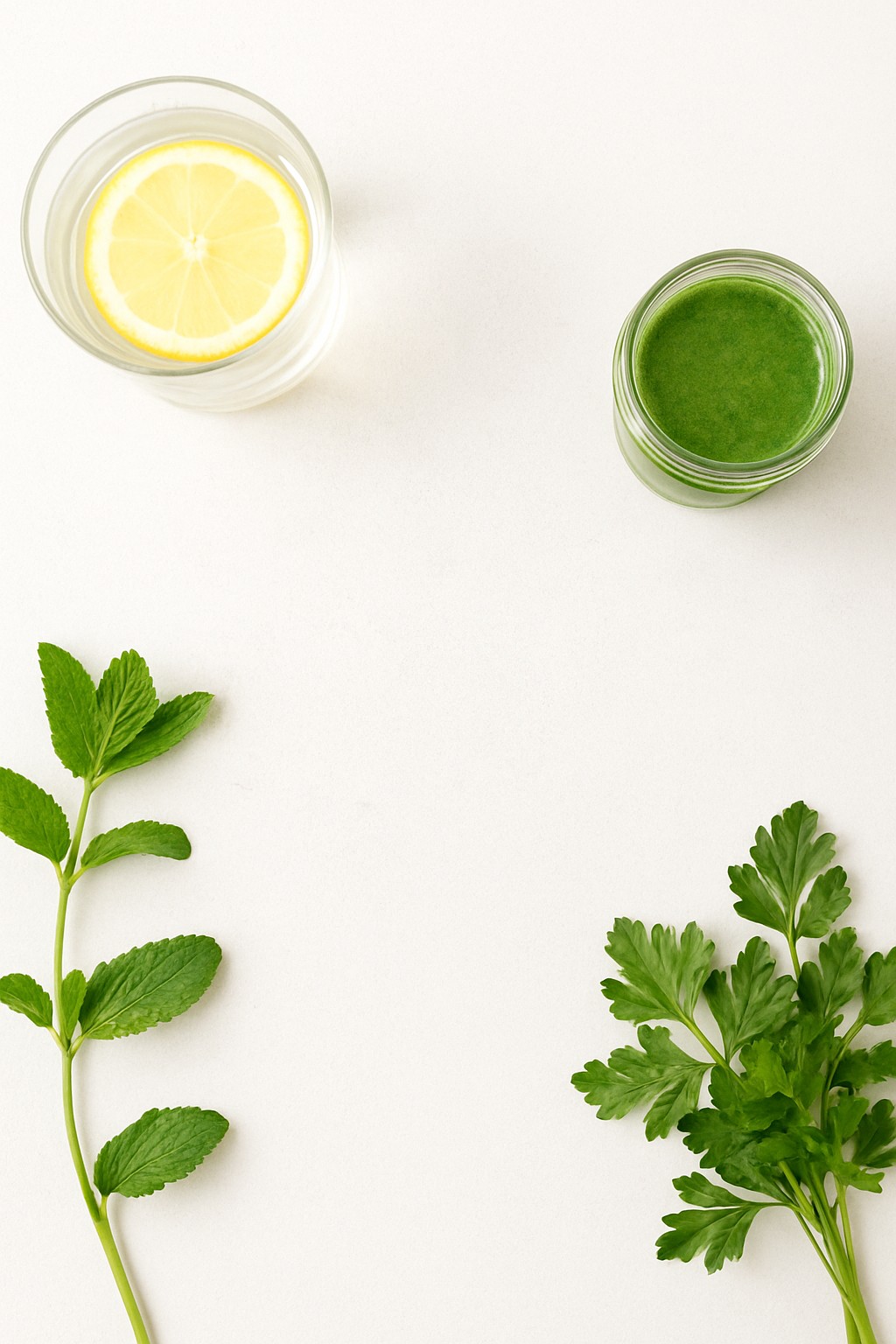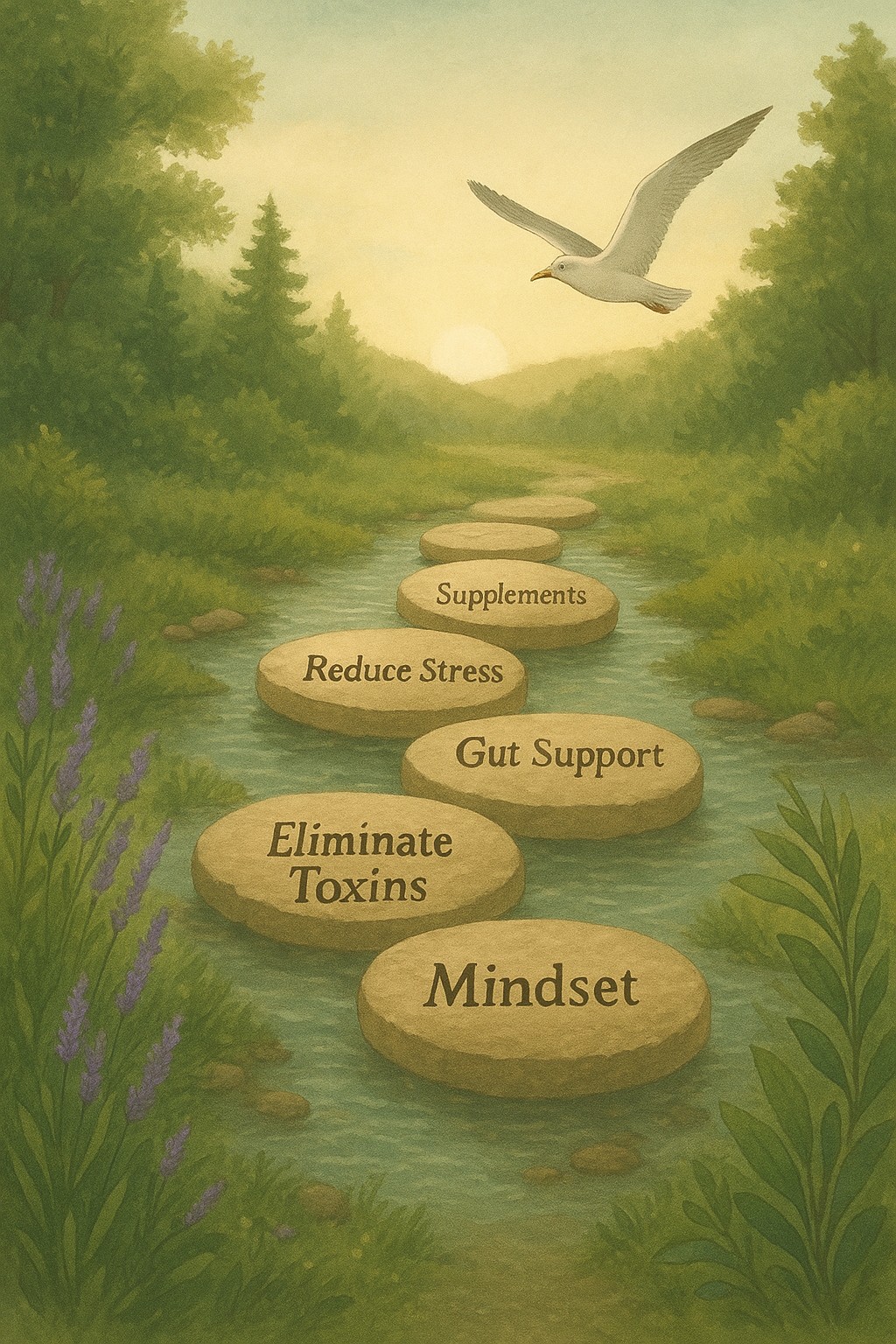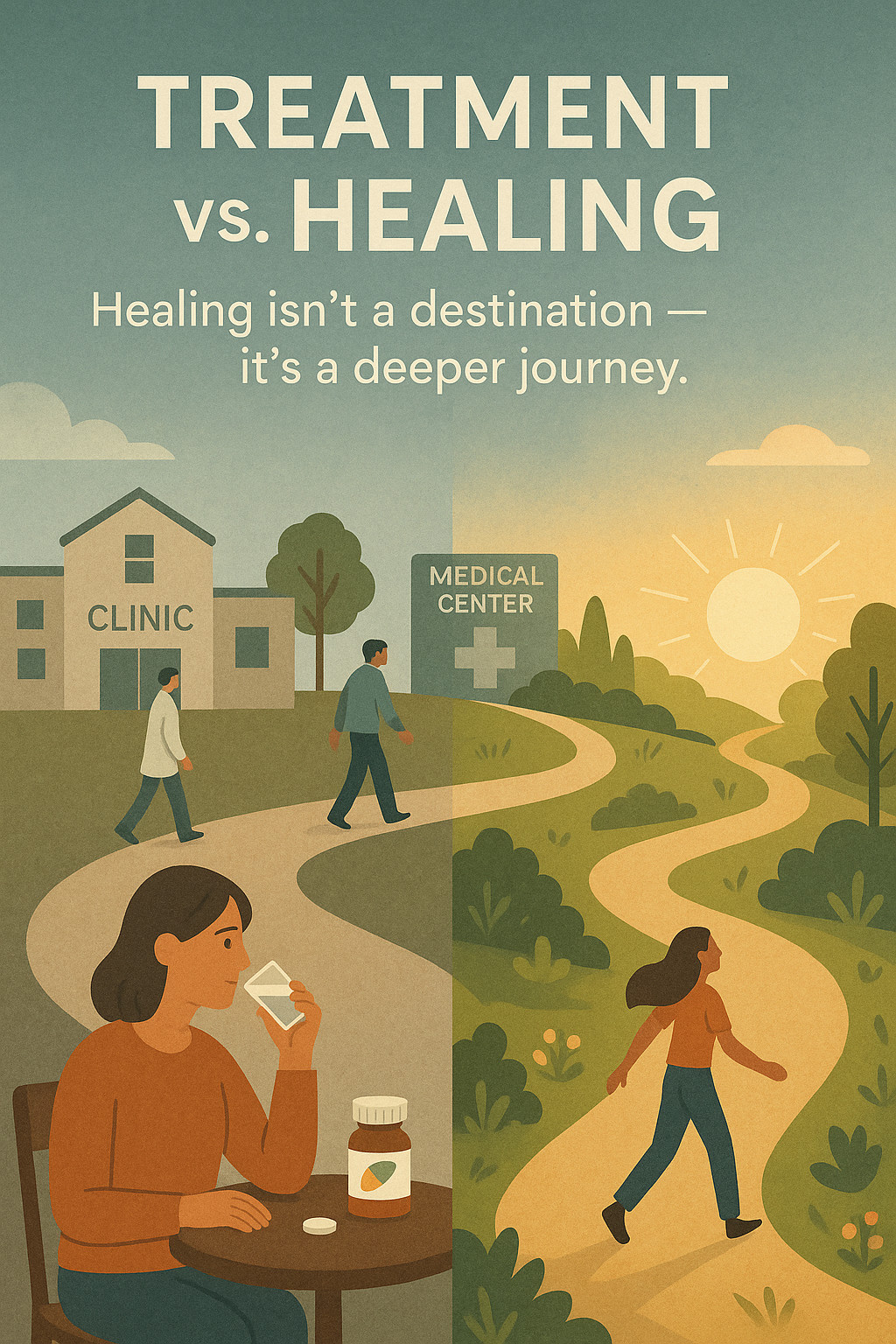
If you’ve lived with ITP for more than five minutes, you’ve probably heard this phrase:
“Be careful — you don’t want to stimulate your immune system.”
I remember hearing this early in my own ITP journey — from doctors, from well-meaning friends, and even from people in the wellness world. At the time, it left me feeling stuck and afraid to try anything. I wanted healing, but I didn’t want to make things worse.
At first glance, that advice sounds wise. After all, ITP is an autoimmune condition. The immune system is attacking platelets. Why would we want to encourage it to do more? But here’s the truth I didn’t understand until much later — and wish someone had explained sooner:
Autoimmunity is not caused by an immune system that’s too strong.
It’s caused by an immune system that has lost regulation, tolerance, and has become overwhelmed with toxins.
Once I began to understand which immune cells were misfiring — and which ones actually help restore balance — my fear began to loosen its grip.
Which Immune Cells Are the Real Problem in ITP?
In ITP, the immune system tags platelets as dangerous and destroys them. The main players involved are:
🔥 Autoreactive T Cells (Especially Th1 and Th17)
- These are helper T cells that drive inflammation
- Th1 and Th17 dominance sends constant “attack” signals
- They encourage the immune system to stay in fight mode — even when no real threat exists
🧨 B Cells (Autoantibody Producers)
- B cells create antibodies
- In ITP, some of these antibodies mistakenly bind to platelets
- Once tagged, platelets are cleared out by the spleen and liver
🚨 Chronic Inflammatory Cytokines
- Signals like TNF-α, IL-6, and IL-17 keep the immune system on high alert
- This creates immune exhaustion, not healing
👉 So when ITP warriors fear ‘stimulating’ the immune system, what they’re really afraid of is further activating these inflammatory, autoreactive pathways.
That fear makes sense — but it’s only part of the story.
A Complementary Perspective from Eastern Medicine
One of the reasons I stopped being afraid of my immune system was learning how Eastern medicine understands autoimmune conditions like ITP.
Rather than viewing ITP as a broken or aggressive immune system, Eastern traditions often describe it as a terrain problem — a body overwhelmed by toxins, stagnation, or poor detoxification, leading to what might be described as “sick” or stressed platelets.
In this view, platelets aren’t being attacked at random. They are being flagged because they no longer appear healthy within an overloaded internal environment.
When the terrain is inflamed, toxic, or congested:
- Platelets may become damaged or altered
- The immune system responds to what looks “abnormal”
- Destruction becomes a downstream effect — not the root cause
The Immune Cells That Help Restore Balance
Not all immune activity is harmful in autoimmunity.
🌲 Natural Killer (NK) Cells: The Regulators
Research on forest bathing (Shinrin-yoku) shows that time spent in nature:
- Increases Natural Killer (NK) cell activity
- Lowers cortisol and stress hormones
- Improves immune surveillance and regulation
NK cells are part of the innate immune system. Their job is to:
- Remove damaged or infected cells (including cancer cells)
- Help regulate immune responses
- Prevent immune chaos
NK cells do not cause autoimmunity.
They help keep the immune system from spiraling into confusion.
They help keep the immune system from spiraling into confusion.
This is why practices like gentle movement, prayer, rest, laughter, essential oils, and time in nature don’t “rev up” autoimmunity — they help retrain the immune system.
Why the Word “Immune Stimulation” Creates So Much Fear
The phrase immune boosting has done a lot of damage in autoimmune spaces.
ITP warriors don’t need:
- ❌ Immune activation
- ❌ Immune boosting
- ❌ More inflammatory signaling
They do need:
- ✅ Immune modulation
- ✅ Immune tolerance
- ✅ Nervous system calming
- ✅ Reduced inflammatory load
Think less gas pedal and more steering wheel and brakes.
Supporting the Immune System Without Fueling Autoimmunity
This shift — from fear to understanding — changed everything for me. My platelet recovery wasn’t about suppressing my body into silence. It was about reducing confusion, calming inflammation, and giving my immune system the right environment to relearn balance.
In my own healing journey and in my work with ITP warriors, the focus is always on restoring regulation — not suppression and not reckless stimulation.
🌿 Gentle, Regulatory Supports
- Supporting gut integrity (where immune education begins)
- Supporting liver detox pathways (to reduce immune confusion)
- Ensuring mineral sufficiency (magnesium, zinc, etc — when appropriate)
- Reducing toxin exposure
🧠 Calming the Nervous System (This Is Huge)
Chronic stress directly pushes inflammatory immune pathways.
Prayer, breathwork, slow walks, essential oils, and stillness aren’t “extra.”
They are foundational to immune healing.
They are foundational to immune healing.
Where Essential Oils Fit In
Essential oils became one of my favorite tools along the way — not because they were a magic fix, but because they supported something I was missing for a long time: a calm, regulated nervous system.
When the body is constantly stressed, inflamed, or in survival mode, the immune system follows suit.
One reason I love essential oils for autoimmune warriors is that many of them:
- Support nervous system balance
- Encourage parasympathetic (rest-and-repair) signaling
- Gently support immune communication without forcing stimulation
Oils such as Frankincense, Lavender, Copaiba, Blue Tansy, and Citrus oils can support calm, inflammation balance, and emotional resilience — all of which influence immune behavior.
Used appropriately, essential oils don’t shout at the immune system.
They whisper safety.
They whisper safety.
And when the body feels safe, healing becomes possible.
A Reframe for Every ITP Warrior
One of the most healing mindset shifts I made was realizing this:
My immune system was never my enemy.
It was trying to protect me — it was just receiving bad information and living in a constant state of alarm.
Your immune system is not your enemy.
It is:
- Overworked
- Misinformed
- Stuck in survival mode
Healing isn’t about silencing it into submission.
It’s about restoring leadership, communication, and trust.
Want Support on This Journey?
If you’re an ITP warrior who feels confused by conflicting advice, fearful of doing the “wrong” thing, or overwhelmed by all the noise around immune health — I understand. I’ve lived it.
Today, I help other ITP warriors explore gentle, faith-rooted, and science-informed ways to support immune regulation, reduce inflammation, and rebuild trust with their bodies.
✨ If you’d like to learn more, I’ve also created an ITP Guide for warriors who want clear, compassionate education on traditional and natural approaches to healing — without fear or overwhelm.
Whether you’re just diagnosed or years into your journey, the guide walks through immune balance, nutrition, toxins, stress, and supportive tools I wish I’d understood sooner.
You can explore the guide, learn about essential oil support, or reach out if you’d like to work together to help your immune system find its way back to balance. I’d love to connect.
Healing is possible — and it doesn’t require fear

In the 1950s, researchers at Harvard conducted a fascinating study with rats that revealed something far deeper than endurance—it uncovered the power of hope.
In the experiment, rats were placed in a container of water to see how long they could swim before giving up. On average, they lasted only about 15 minutes. But when researchers rescued them just before drowning, dried them off, let them rest, and then placed them back in the water, something incredible happened. The same rats swam for more than 60 hours.
What changed?
Not their muscles. Not their ability.
It was their belief that rescue was possible.
They had learned that help could come—and that hope changed everything.
How This Connects to Our Health and Faith
Like those rats, our health struggles can make us wonder: How long can I endure what I’m going through?
When I was facing ITP (Immune Thrombocytopenia), there were moments I felt like I was barely treading water. With no experience and no hope, I didn’t know if I had the strength to keep going. But through each trial—and each rescue—I learned something powerful.
It wasn’t about my own strength or ability to “swim.”
It was about the knowledge that rescue was possible.
Once we’ve been pulled from the water a few times, our hearts begin to draw a new conclusion: I can be saved. God can meet me here again.
Just as those rats swam longer after experiencing rescue, we too can endure longer when we know that God has delivered us before—and He will do it again.
As we see someone survive, that can build hope and resilience in us.
That’s why sharing our testimonies matters so much. When you see someone rise out of a health battle—when you see someone walk through ITP and find healing naturally and spiritually—it plants hope in your heart that you can rise too.
What We Feed Ourselves Determines Our Strength
In the Harvard study, the rats eventually did die after 60 hours. But it makes me wonder: did they really die of exhaustion… or of starvation?
We, too, can only endure for so long if we are not feeding ourselves properly—physically and spiritually.
- We need nourishment.
- We need truth.
- We need the Word of God to sustain us through long nights of waiting.
“But those who wait on the Lord will renew their strength;
they will mount up with wings like eagles;
they will run and not grow weary;
they will walk and not faint.”
— Isaiah 40:31
they will mount up with wings like eagles;
they will run and not grow weary;
they will walk and not faint.”
— Isaiah 40:31
When we feed on God’s promises, our endurance increases. We find that we can tread the waters of uncertainty a little longer—because we’re not relying on our own strength. We’re trusting the One who rescues.
From Struggle to Strength
Seeing how God brought me through ITP reminds me that He is always near and that no trial is wasted. Every time I’ve been “pulled from the water,” it prepared me to swim stronger the next time.
If you are struggling with low platelets, chronic illness, or any season of uncertainty—please remember: you are not forgotten.
God is near, even in the deep water. And because He is your rescuer, you can endure with hope.
God is near, even in the deep water. And because He is your rescuer, you can endure with hope.
Keep looking up.
Keep believing.
And keep treading—because your rescue is coming.
Keep believing.
And keep treading—because your rescue is coming.
🌿 For ITP Warriors Waiting on the Lord
If you’re walking through ITP or another autoimmune condition and you’re searching for strength—both naturally and spiritually—I’d love to walk with you.
In my community, Platelets, Plants, and Prayers, I share encouragement, natural wellness tips, and faith-filled hope for healing.
You don’t have to face the water alone.
Hope and healing are possible.
Hope and healing are possible.
💛 Want to be reminded that hope still wins?
My devotional, "Battles & Breakthroughs: Victory in Christ for Chronic Illness and Life's Toughest Battles", was written straight from my own seasons of deep water. Each daily entry and reflection is designed to lift your spirit, renew your faith, and remind you that God never wastes a battle.
My devotional, "Battles & Breakthroughs: Victory in Christ for Chronic Illness and Life's Toughest Battles", was written straight from my own seasons of deep water. Each daily entry and reflection is designed to lift your spirit, renew your faith, and remind you that God never wastes a battle.
Let these pages encourage your heart while you wait on the Lord.

🩸 Wolfberries and Platelet Health: My Experience & What the Research Shows
When I was first diagnosed with ITP, I felt lost trying to figure out what foods and natural options were safe—or even helpful—for supporting my platelets. Over time, I discovered that some foods can play a supportive role, not as a cure, but as a way to strengthen the body and create a healthier environment for platelets to thrive.
One of those foods is the wolfberry (also called goji berry or Lycium barbarum). I’ve been using wolfberries daily for years, most often in juice form, and I’ve found them to be an encouraging part of my wellness routine. In fact, they’re one of the key features of my 11-Day Jumpstart protocol because of their nutrition, energy-boosting properties, and research-backed benefits for platelet health.
Why This Matters for ITP
If you’re new to ITP (immune thrombocytopenia), it’s an autoimmune condition where the immune system mistakenly destroys platelets. Since platelets are essential for clotting, low levels can cause bruising, bleeding gums, or other bleeding risks.
That’s why many of us are cautious about what we eat and what supplements we try—because some things can negatively impact platelets. But thankfully, research is showing that wolfberries may offer gentle, natural support in several ways.
What the Research Says
One particular study caught my attention: “Therapeutic Uses of Lycium barbarum Polysaccharides on Idiopathic Thrombocytopenic Purpura Mice via Inhibition of Oxidative Stress.”
While this research was done on mice, the findings are encouraging:
- Platelet Counts: The active compounds in wolfberries, called polysaccharides (LBP), were shown to raise platelet levels.
- Oxidative Stress: Wolfberries helped reduce oxidative stress—a type of damage that can worsen platelet destruction in ITP.
- Immune Support: They also appear to help balance the immune response, which is key since ITP is autoimmune in nature.
Other studies have confirmed wolfberries’ strong antioxidant properties, suggesting they may help protect platelets from damage and support overall immune health.
How I Use Them in Daily Life
For me, wolfberries aren’t just something I read about in a study—they’re something I actually use and enjoy every day. I like them in puree or juice form because it’s easy and convenient, but there are many ways to add them to your diet:
- Sprinkle dried berries over oatmeal, yogurt, or salads.
- Brew them in a tea.
- Add them to soups, rice, or stir-fries (a traditional use in some Asian cultures).
They’re widely considered safe in moderation, though as always, it’s a good idea to check with your doctor before making any changes.
My Encouragement to You
If you’re on an ITP journey, I know how overwhelming it can feel. The good news is there are safe, nourishing, natural options that may help support your body in the healing process. Wolfberries are not a magic fix, but they can be part of a diet and lifestyle that builds resilience, supports your immune system, and gives your platelets a healthier environment.
For me, wolfberries represent hope—a small but powerful step toward nourishing my body as I walk this path of healing.
✅ Key Takeaway: Wolfberries may support platelet health through their antioxidant and immune-balancing properties. They are safe, nutritious, and easy to add into everyday life, making them a gentle and encouraging option for those of us navigating ITP.
🌿 Ready to Take the Next Step?
If you’re looking for a simple way to nourish your body, reduce inflammation, and boost energy while supporting your platelets, my 14-Day Reset is a great place to begin. It’s a guided reset that focuses on clean eating, gentle detox, and daily habits that help your body thrive—wolfberries included!
If you’d like to learn more about the wolfberries or juice I personally use, feel free to reach out and connect with me. I’m always happy to share what’s worked for me and help you find options that fit your wellness journey.

Why I Believe Remission from ITP Is Possible: My Healing Manifesto of Faith and Hope
If you’re living with ITP and wondering if healing is even possible, you’re not alone. I’ve been there too—scared, overwhelmed, and unsure where to turn. But today, I stand on the other side of that valley, in remission, with a message burning in my heart:
Healing is possible.
Not just symptom relief. Not just temporary remission. True, deep, life-changing healing.
Not just symptom relief. Not just temporary remission. True, deep, life-changing healing.
This is my personal healing manifesto—what I believe, what I’ve lived, and what I want you to know as you search for answers and hope.
I Believe the Body Was Made to Heal
Even when lab reports look grim, I believe your body is not broken—it’s communicating. Low platelets don’t mean your immune system has failed. It means it’s asking for help, for restoration, for a chance to reset.
I learned to stop fighting my body and started listening to it.
I Believe in Root-Cause Healing, Not Just Immune Suppression
Most conventional ITP treatment plans focus on suppressing the immune system. And while there may be moments where that’s necessary, I don’t believe that’s the only—or best—way.
I believe in working with the immune system:
- Removing toxic triggers
- Supporting the gut and liver
- Reducing inflammation
- Nourishing the body through anti-inflammatory foods and essential nutrients
For me, this meant combining natural therapies, nutrition, and lifestyle changes grounded in faith and intention.
I Believe in the Power of Faith
I didn’t walk this healing path alone. God was with me every step, guiding me to the right information, the right support, and the right mindset shift.
Healing from ITP is physical—but it’s also spiritual and emotional.
Fear and hopelessness are heavy burdens. But when we give those to God, we create space for peace, clarity, and healing to begin.
Fear and hopelessness are heavy burdens. But when we give those to God, we create space for peace, clarity, and healing to begin.
I Believe Words Matter
What we say over our bodies matters. For a long time, I repeated what I’d been told—“I’m sick. I have an incurable autoimmune disease.” But eventually, I started speaking life instead.
Now I say:
🟣 “I’m healed.”
🟣 “My body is resilient.”
🟣 “I serve a God who still heals.”
🟣 “I’m healed.”
🟣 “My body is resilient.”
🟣 “I serve a God who still heals.”
I Believe Remission Is Real
Not just for me. For you. For others.
I’m not a doctor, but I’m someone who’s lived this and walked into remission with God’s help and a natural healing plan that supported my body instead of suppressing it.
I’m not a doctor, but I’m someone who’s lived this and walked into remission with God’s help and a natural healing plan that supported my body instead of suppressing it.
My story isn’t the exception—it’s a reminder that there is hope.
You Are Not Alone
If you’ve just been diagnosed, if you’re feeling discouraged, or if you’re searching late into the night for anything that offers real answers—know this:
✨ You are not alone.
✨ You are not broken.
✨ There is hope.
✨ And healing is possible.
✨ You are not broken.
✨ There is hope.
✨ And healing is possible.
Want Support on Your Healing Journey?
I created a guide for those newly diagnosed with ITP (or feeling stuck in fear) that walks through natural and faith-filled approaches to support your platelets, reduce inflammation, and care for your whole body.
👉 [Download the ITP Guide here]
👉 [Download the ITP Guide here]
Or explore more blog posts on:
- [My favorite immune supporting food for ITP]
- [Reducing toxins that affect platelets]
- [Faith, mindset, and autoimmune healing]
You are deeply loved. Your body is capable. And your healing journey matters.

When you're living with ITP (Immune Thrombocytopenia Purpura), it can feel like your life has been hijacked. The unexplained bruises, constant fatigue, fear of bleeding—it’s enough to make anyone feel defeated. But what if the most powerful healing tool isn’t a medication… it’s your mindset?
The Power of the Words You Speak
If you’re like many ITP warriors, you may have caught yourself thinking or saying:
- “I can’t live like this anymore.”
- “This is a horrible disease.”
- “My life will never be the same.”
- “I’ll be stuck with this forever.”
These thoughts may feel honest in the moment—but they can also become traps.
Dr. Bruce Lipton, author of The Biology of Belief, teaches that our cells respond to what we believe. That means the way we think and speak about our health can literally shape the way our body heals. You’re not just dealing with platelets—you’re dealing with beliefs that either support your body… or sabotage it.
Flip the Script: Mindset Shifts That Encourage Healing
Let’s try something radical. What if you flipped the script?
Instead of saying:
❌ “I have a disease.”
Try:
✅ “I’m healing from a disease.”
❌ “I have a disease.”
Try:
✅ “I’m healing from a disease.”
Instead of:
❌ “This is ruining my life.”
Try:
✅ “This is challenging me to grow in strength and resilience.”
❌ “This is ruining my life.”
Try:
✅ “This is challenging me to grow in strength and resilience.”
Instead of:
❌ “There’s no hope.”
Try:
✅ “Hope may be quiet right now, but it’s still here.”
❌ “There’s no hope.”
Try:
✅ “Hope may be quiet right now, but it’s still here.”
This isn’t just semantics—it’s strategy. You’re choosing to speak life over your body instead of death. That matters.
This Is Not Toxic Positivity—It’s Healing Focus
To be clear, flipping your mindset isn’t about pretending everything is fine. It’s not about ignoring blood test results or pretending you're not afraid.
This is about acknowledging your pain while still choosing a path of possibility and purpose.
You can say, “This is hard” and still believe, “I can heal.”
You can cry and still declare, “I’m stronger than I feel today.”
Speak Life Over Your Platelets: A 7-Day Challenge
Want to try it? Here's a simple challenge:
👉 For the next 7 days, speak one hopeful, healing-focused statement out loud each morning.
Here are a few to get you started:
- “My body was created to heal.”
- “Every day, I’m moving toward better health.”
- “I am not defined by ITP.”
- “I choose hope, even when I don’t feel it yet.”
Even if you don’t believe the words at first, speak them anyway. Speak them until you do.
🌿 Faith for the Journey
If you’re a person of faith, it helps to remember that your mindset isn’t just a mental battle — it’s a spiritual one too. God sees your struggle and walks with you in it. When the road feels uncertain, His Word can anchor your heart and bring peace to your thoughts. You don’t have to face ITP or any health journey alone. As you speak hope over your healing, remember what God speaks over you — strength, purpose, and peace.
Here are a few verses I cling to:
- Isaiah 41:10 – “So do not fear, for I am with you... I will strengthen you and help you; I will uphold you with my righteous right hand.”
- Romans 15:13 – “May the God of hope fill you with all joy and peace as you trust in Him, so that you may overflow with hope by the power of the Holy Spirit.”
- Psalm 103:2–3 – “Praise the Lord, my soul, and forget not all his benefits—who forgives all your sins and heals all your diseases.”
Final Encouragement
You are not a victim of ITP. You are not broken beyond repair. You are a warrior in the middle of transformation.
Flip the script.
Choose healing.
Speak hope.
And watch your body begin to follow.
Choose healing.
Speak hope.
And watch your body begin to follow.
Want more support on your healing journey?
Download my free guide: 3 Ways to Increase Platelets Naturally — filled with practical tips you can implement right away.







